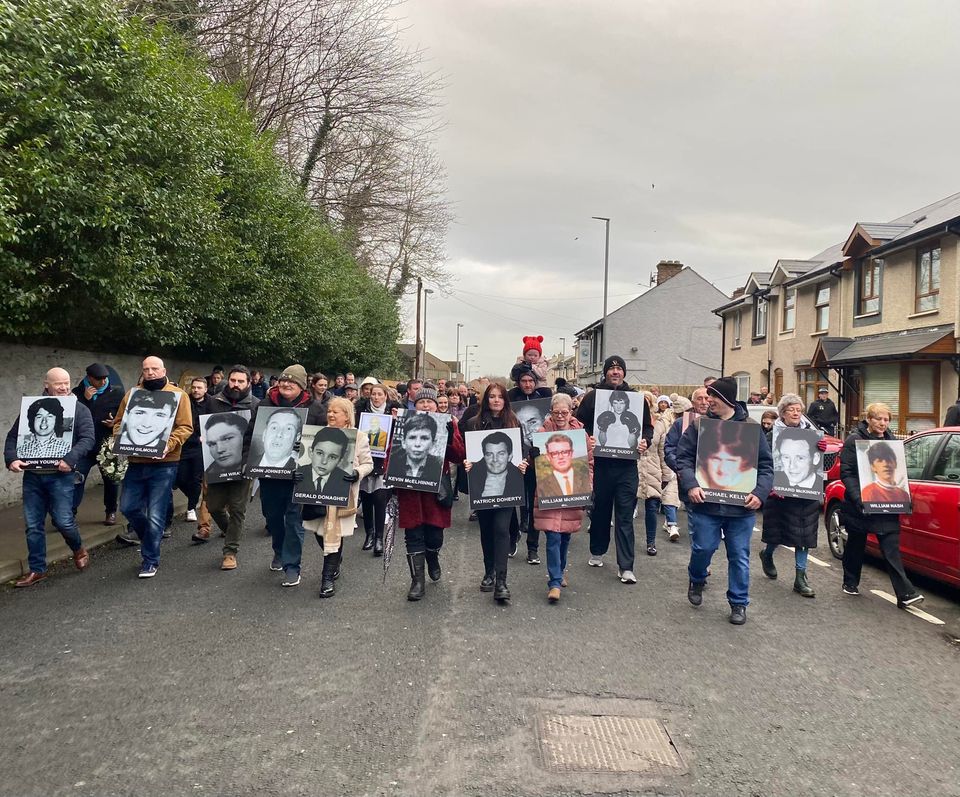 This is an article about Black History Month, but it will take a while to get there.
This is an article about Black History Month, but it will take a while to get there.
This photo is one of many annual marches to commemorate Bloody Sunday in Northern Ireland (the event the U2 song comes from) where police shot and killed 26 unarmed and peaceful protesters. Today is the 50th anniversary.
What is commonly referred to as ‘The Troubles’ began in 1967 as a series of peaceful civil rights protests directly modeled on the strategies and tactics of the American Civil Rights movements–and particularly Dr. Martin Luther King. Despite being roughly similar numbers of Catholics and Protestants in most areas, Catholics were subject to all manner of segregation and discrimination, quite similar to Jim Crow here.
Although we justifiably view it as horrible, the backlash against protesters here in the 50’s and 60’s, involved a (relatively) small number of deaths and violence. (Hang on, I know that stung.) But it was followed by the highly successful Voting Rights Acts of 1964 and 1965. So there was every reason to assume a similar approach might work in NI as well. NI Protesters did not expect an easy time. But they assumed they might ultimately prevail. After all, the British government could have done what the US government did.
Instead, the government refused to negotiate towards reform of any kind. And the most basic reason is because the Protestant majority did not want any change. The majority -wanted- as forceful a response as possible. The government did exactly that. Ironically, the leadership of the time argued cynically that they were not being sadistic or unjust. Democracy -demanded- that they listen to the will of that majority.
The failure of peaceful protests led inevitably to the rise of terrorist groups on both sides (Catholic and Protestant) and thousands of deaths over 30 years.
Things are certainly far from perfect in America now. However, I come at this from the perspective that the American Civil Rights movement demonstrated that the government, at one moment in time, -was- capable of listening and responding to minority protest and then offering meaningful reform.
But it takes both sides: It takes a public willing to organise, not just complain. And then it takes a government on the other side willing to compromise and listen to that minority.
As we begin Black History Month, recognise that Dr. King influenced people around the world to follow his approach. In America it had success. But in other places and times? Eh, not so much.
So credit where credit is due: in 1964 America there were partners on the other side who were willing to admit that democracy is not merely as ‘the will of the majority’. It also demands justice for all.
If there is an issue you care deeply about, I hope that you, the residents of Des Moines, will consider that -protest-, not merely, “I have a concern”, is an essential part of our democratic process. Organise. Push hard for what you want. It’s not easy. You have to demonstrate that you represent a real constituency.
And my personal pledge, and my hope, is that if you put in the work and demonstrate that you -are- for real, we will be willing, not merely to listen, but to really examine where the City needs to change–and then take action.
My point is that, in my lifetime, I’ve seen it can go either way. But here, we have a track record of (eventually) doing the right thing.
The trick is to keep doing it. Because the other small detail is that this crap never ends. Something good happens, you walk away and five years later, it looks like things are sliding back again. I don’t just mean civil rights. It could be -any- aspect of government, at -any- level. Very few things in government are ever ‘done’.




Comments
Comments are closed.